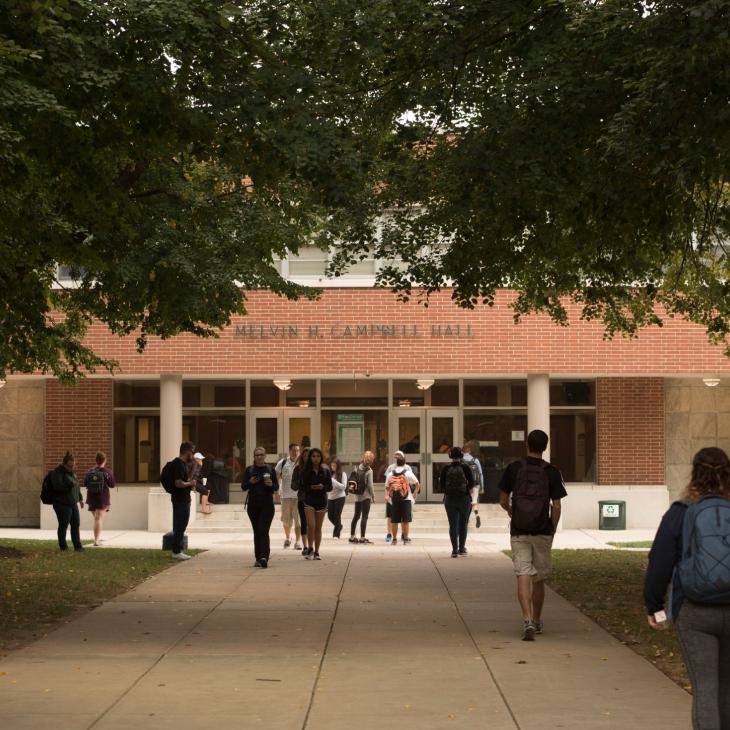
Campus COVID-19 Response
CDC Respiratory Guidelines
The isolation period of five days after testing positive for COVID is no longer required. The CDC has issued new guidelines to help limit the spread of all respiratory viruses, including influenza, COVID, and respiratory syncytial virus.
When You Have a Respiratory Virus
Stay home and away from others if you have respiratory virus symptoms that are not explained by another cause.
These symptoms may include:
- Fever
- Chills
- Fatigue
- Cough
- Congestion
- Headache
You may return to your normal activities when both are true for at least 24 hours:
- Your symptoms are improving overall and
- You have not had a fever (and are not using fever-reducing medication such as acetaminophen and ibuprofen)
Once you return to your normal activities, you should consider taking added precautions for the next five days.
Such precautions can include, but are not limited to:
- Physical distancing
- Wearing a mask
- Practicing good hygiene
Keep in mind that you are still able to spread that virus that made you sick, though you may be less contagious.
If you develop a fever or start to feel worse after returning to normal activities, stay at home away from others until both of the previously mentioned criteria are true.
In general, infectious droplets and particles accumulate near the infected person. As a result, the closer you are to someone who is ill, the greater your chances of becoming infected.
Take precautions to prevent the spread of respiratory viruses.
- Be diligent about your hygiene. This includes frequent hand washing and use of hand sanitizer.
- Avoid crowded areas where you may come in contact with many people who are sick.
- Avoid being around people who have symptoms
- Stay up to date on your vaccines such as COVID and influenza per your primary care providers guidance.
- Cover your cough and sneeze with your elbow.
- Avoid sharing food and drinks.
- Clean frequently touched surfaces such as countertops, desks, and doorknobs.
- Wash towels and sheets weekly.
A respiratory viral illness can cause symptoms for at least 7 days. Some symptoms can continue for as long as 14 days. In general, if you have symptoms that are not resolving or have resolved but then worsened, you should seek treatment from a healthcare provider.
CARES Act Reporting
Higher Education Emergency Relief Fund
York College of Pennsylvania has received funding from the U.S. Department of Education’s Coronavirus Aid, Relief, and Economic Security (CARES) Act: Higher Education Emergency Relief Fund, which addresses the impact of the COVID-19 situation on institutions of higher education.


